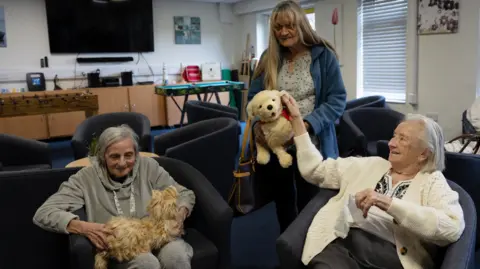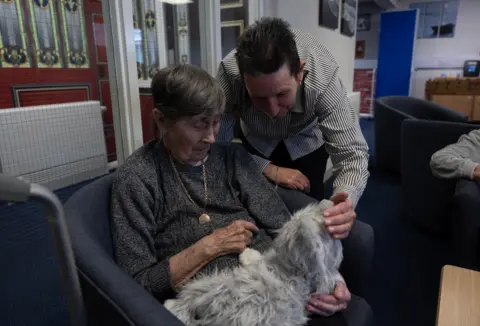Robot pets help care home dementia patients
 Facundo Arrizabalaga / MyLondon
Facundo Arrizabalaga / MyLondonAn east London care home has been trialling technology such as robot pets and Amazon Alexas to help transform the lives of residents living with dementia.
Kallar Lodge on Gregory Road, Marks Gate, is Barking and Dagenham's only remaining council-run care home.
The home is part of the Adults Care and Support integrated care service and currently supports 43 residents who are aged over 65 and have dementia.
Following the launch of Barking and Dagenham Council's new care technology service with the provider Alcove in September 2023, Kallar Lodge has been using a range of devices to support its residents.
The introduction of robot dogs and cats has significantly helped to reduce distress in residents, and has even seen non-verbal residents and those who are dysphasic speak to the animals and form emotional connections.
Staff say the robot animals, which mimic the sounds of dogs and cats and respond when petted, have helped to distract residents as they stay in one place for longer and are left visibly happy from these interactions.
 Facundo Arrizabalaga / MyLondon
Facundo Arrizabalaga / MyLondonDigital translators have also helped to improve the quality of life for residents who do not speak English, and it has helped address social isolation and improve connections with staff.
Manager Pauline Humphrey said the translators have helped to improve people's self-esteem and social interactions.
She said: "A lot of people with dementia will revert back to their original language because they forget the English-speaking; it can be really, really difficult to understand what people want and they can be socially isolated.
"You can also use the translator in group activities so residents can understand what's being asked and they can be a part of it so it's good for communicating with people."
Listen to the best of BBC Radio London on Sounds and follow BBC London on Facebook, X and Instagram. Send your story ideas to [email protected]
